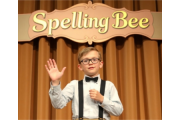At Notre-Dame-de-Laus, the pronunciation of the village’s name—“Laus ” becomes “Low”’—is explained by the punning name of an auberge in town (“Laus-Berge”). This is a village bearing testimony to its founders’ Catholic piety, named as it is for a series of appearances of the Virgin Mary to children in the south of France between 1664 and 1718. All the names in the graveyard above the village were French, and went back more than a century. Here the family’s two cars crossed the Lievre to follow the Val Ombreuse road to the cottage, behind a vehicle proudly bearing the license plate LAUSOIS for part of the way. The road meandered along the arms of the lake on the left and then through lonely stretches of forest past heavily-wooded slopes on the right until they arrived. The joyful shrieking re-encounter of cousins was succeeded by an afternoon at the lake, jumping from the dock into the warm water, baking in the sun on the life-raft anchored nearby, sword-fighting each other with foam noodles on the dock, and trying without success to catch minnows in the shallows. Uncle Steve took all five children for a canoe ride past what they called ‘Elephant Rock’ because it had “big ears” to an island where their Auntie Jan said she believed Easter eggs had been buried. These were uncovered with plastic shovels and whoops of delight. The pandemic’s restrictions had apparently forced the Easter Bunny to bury his deliveries there instead of at the children’s homes. Back on shore, little Daniel at first resisted his cousins’ entreaties to jump into what he called “the yucky reedy stuff” that he could see from the dock above, but he soon overcame his fears, and had eventually to be enticed from the water, sunburned despite his shirt and life-jacket, with the promise of hot dogs and nachos for supper, and peaches with ice cream for dessert, on the deck overlooking the lake. After supper, the cousins all played hide-and-seek, shrieking loudly among the pines on the hilltop, careful to avoid ticks said to lurk in the foliage.
All six adults were keen on seeing the result of game 4 of the NHL Stanley Cup final between Tampa and Montreal on the large-screen television rigged up outside by their uncle beside the fire-pit. It was, Paul had reflected, curious to be watching this game outdoors, so pandemically late in the hockey season with the temperature nudging thirty degrees, the sun yet to set, and the arrival of mosquitoes curiously delayed: a game of ice hockey between one team from the tropics and a Canadian team whose chances of winning were not highly rated. In the event, Montreal won the game, but eventually succumbed to Tampa in the next, to forfeit the cup after the fifth of the seven-game series. Once the game ended, the children were allowed to stay up to roast marshmallows under a sky spangled with stars, far more stars than the children had ever seen in Toronto. This was because of what Paul told her was ‘light pollution’ from the city’s street lights, homes, and shopping centres, a fact his granddaughter registered first with frowning disbelief and then with a wrinkle of disapproval on her six-year-old nose. How can lights pollute? This revelation was clearly cause for deep thought about its implications.
On their last night there, before the long drive back to Toronto, Lisette helped put the children to bed. Michaela, eyes shining, asked in a hopeful whisper, “Can we do this again—have Christmas in July here next year as well?”
“Well, we hope everything will be back to normal by Christmas this year, and the road here is not open in winter, so we can only come in summer…”
“Grandad said there are stars here that don’t exist in Toronto. We’d like to see them again.”
“You will. Grandad meant they are there, but you can’t see them because of the city lights.”
Michaela was not convinced, but nodded through a yawn. “We had a great time.”
“It’s good to be grateful. Night-night, cherie. Fais do-do.”
Answer came there none, as she had already drifted sleepily off to Nod to find her brother.






Susan Leadlay3 years ago
A wonderfully evocative story, Peter, which says so much about the pain and sadness involved in being forced to forego that contact with family and especially with grandchildren, during the pandemic. I loved the idea of Christmas in July, and Easter eggs at the cottage, making up for lost time. I enjoyed your description of the sheer joy of the children and the pleasure which the gatherings brought to you all. Susan Leadlay
Peter Scotchmer3 years ago
Thanks, Sue. You correctly guessed that this is a true story! / Peter